Featured
In Their Own Words: Lives Lost in 2021

Among the losses felt throughout the course of 2021, friends, family, and colleagues have had to say goodbye to a number of remarkable psychological scientists who helped shape the field through their research and mentorship. We remember several of these individuals with selected excerpts from their published work.
Editor’s note: This article has been updated to reflect further losses since it was first published in the November/December Observer.
• Albert Bandura• Aaron Beck
• Mihaly Csikszentmihalyi
• Ed Diener
• R. Allen Gardner
• Lila Gleitman
• Mortimer Mishkin
• Lee Ross
• Sandra Wood Scarr
• James H. Sidanius
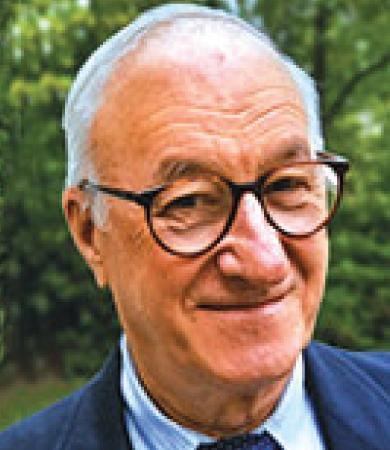
Albert Bandura
Stanford University
December 4, 1925–July 26, 2021
APS James McKeen Cattell Fellow, APS William James Fellow
Read more about Bandura’s foundational findings on social learning theory.
“I began my career at the height of behaviorism. At that time, behavior was believed to be shaped and modified by response consequences. Psychodynamic theories dominated the clinical field and the popular culture. It was in this context that I was developing social cognitive theory, which is rooted in an agentic perspective. In this agentic approach, individuals are enabled and guided to take the steps to improve their lives . . . Unlike the tendency to focus on psychopathology in our field, social cognitive theory strives to develop and bring the best in others at both the individual and social system levels.”
2019, “Applying Theory for Human Betterment”
Perspectives on Psychological Science
“During the course of evolution, humans developed an advanced cognitive capacity that enables them to enlarge their knowledge and competencies. They could do so rapidly through information conveyed by the rich array of models. Direct experience is a tough teacher. Learning from example shortcuts laborious and costly trial and error. Many ages ago, Voltaire heralded the benefits of social modeling: ‘Is there anyone so wise as to learn by the experience of others?’”
2018, “Toward a Psychology of Human Agency: Pathways and Reflections”
Perspectives on Psychological Science
“People are contributors to their life circumstances, not just products of them. Social cognitive theory rejects a duality between human agency and social structure. People create social systems, and these systems, in turn, organize and influence people’s lives . . . Their advanced symbolizing capacity enabled humans to transcend the dictates of their immediate environment.”
2006, “Toward a Psychology of Human Agency”
Perspectives on Psychological Science
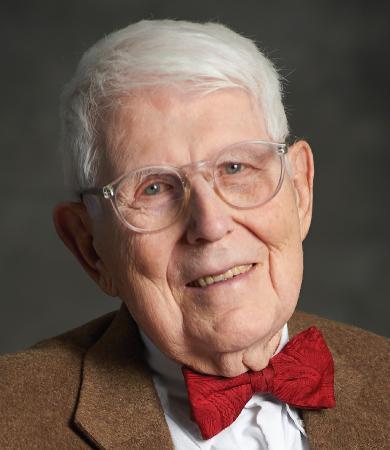
Aaron Beck
University of Pennsylvania
July 18, 1921–November 1, 2021
APS James McKeen Cattell Fellow
Learn about Beck’s integrative theory of depression. Also see his obituary in the New York Times.
“This article is intended to show the synchrony between the psychological and biological findings in normal adaptation and in the predisposition to and precipitation of severe depression. All of the findings related to depression can be joined together to provide a comprehensive model of the disorder that explains its puzzling features..”
2016 (with Keith Bredemeier), “A Unified Model of Depression: Integrating Clinical, Cognitive, Biological, and Evolutionary Perspectives”
Clinical Psychological Science
“I think cognitive therapy has evolved, and over the years what I’ve done personally is try to incorporate more and more of the findings that have come from various psychological disciplines. I’ve been quite influenced, say, by cognitive psychology and sociopsychology and experimental psychology. All of these disciplines have findings that are relevant to what I would consider the general theory. I think as there are new findings in psychology, they’re going to be reflected in an expansion of the theory behind cognitive therapy.”
A Conversation with Aaron T. Beck
Annual Review of Clinical Psychology
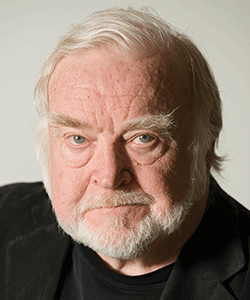
Mihaly Csikszentmihalyi
Claremont Graduate University
September 29, 1934–October 20, 2021
APS James McKeen Cattell Fellow, APS Charter Member
Read the New York Times obituary. Read a review of Flow by APS Fellow Carol Tavris.
“There is not much we can do about our looks, our temperament, or our constitution. We cannot decide … how tall we will grow, how smart we will get. We can choose neither parents nor time of birth, and it is not in your power to decide whether there will be a war or a depression. The instructions contained in our genes, the pull of gravity, the pollen in the air, the historical period into which we are born–these and innumerable other conditions determine what we see, how we feel, what we do. It is not surprising that we should believe that our fate is primarily ordained by outside agencies. Yet we have all experienced times when, instead of being buffered by anonymous forces, we do feel in control of our actions, masters of our own fate. On the rare occasions that it happens, we feel a sense of exhilaration, a deep sense of enjoyment that is long cherished and that becomes a landmark in memory for what life should be like. This is what we mean by optimal experience.”
2008, Flow: The Psychology of Optimal Experience

Ed Diener
University of Illinois at Urbana-Champaign, University of Utah, and University of Virginia
July 25, 1946–April 27, 2021
APS William James Fellow
Read a remembrance about how Diener became known as “Dr. Happiness.”
“Pointing out that well-being can and should be measured and then used as a bottom line for public policy has led to scientific and governmental progress. The next strides, in our opinion, will come from broadening well-being beyond purely subjective measures.”
2018 (with Martin E. P. Seligman), “Beyond Money: Progress on an Economy of Well-being”
Perspectives on Psychological Science
“A lack of resources such as health, income, and social support is frequently associated with unhappiness. In contrast, the happiest individuals usually have an abundance of these resources and also are fortunate to come from societies with high social support, income, and [subjective well-being]. Many of our findings reconfirm the conclusions of past research, such as the importance of social support, being able to meet basic needs, and the benefits of health and lack of pain.”
2018 (with colleagues), “Happiest People Revisited”
Perspectives on Psychological Science
“Positive psychologists and other psychological scientists can feel pride: From yesterday’s studies of the demography of happiness to today’s studies of happiness interventions and national well-being, happiness has matured. We have learned much about the roots and fruits of happiness. Yet the journey continues, with so much more to be learned.”
2018 (with David G. Myers),
“The Scientific Pursuit of Happiness”
Perspectives on Psychological Science
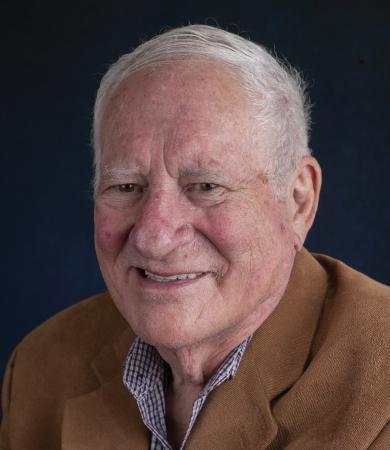
R. Allen Gardner
University of Nevada, Reno
February 21, 1930–August 20, 2021
APS Fellow
“Use of the hands, however, is a prominent feature of chimpanzee behavior; manipulatory mechanical problems are their forte…. In our choice of sign language we were influenced more by the behavioral evidence that this medium of communication was appropriate to the species than by anatomical evidence of structural similarity between the hands of chimpanzees and of men.”
1969 (with Beatrix T. Gardner), “Teaching Sign Language to a Chimpanzee”
Science
“For if the development of human verbal behavior requires any significant expenditure of biological resources, then it must confer selective advantages on its possessors. In order to confer any selective advantage, however, a biological trait must operate on the world in some way; it must be instrumental in obtaining benefit or avoiding harm.”
1984 (with Beatrix T. Gardner), “A Vocabulary Test for Chimpanzees (Pan troglodytes)”
Journal of Comparative Psychology
“Without actually overcoming nature, we can still discover its laws and invent ways of utilizing them. Whether we are concerned with species identity of gender identity, eating habits or mating habits, survival skills or psychopathology, we must study the obligatory consequences of species membership as well as the arbitrary effects of experience. True discoveries offer new and unexpected possibilities for change. Contemporary discoveries in the ethology, neurology, and logic of the learning process offer just such new and counterintuitive possibilities.”
1988 (with Beatrix T. Gardner), “Feedforward versus Feedbackward: An Ethological Alternative to the Law of Effect”
Behavioral and Brain Sciences
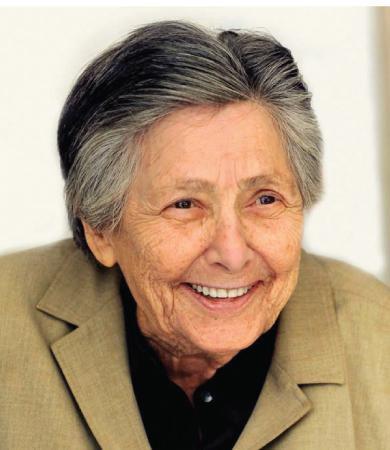
Lila Gleitman
University of Pennsylvania
December 10, 1929–August 8, 2021
APS Fellow, APS Mentor Award Recipient
Read more about Gleitman’s innovative research on language and learning.
“If I had to summarize the odyssey that this succession of studies chronicles, the two-line conclusion might be: Language acquisition is obviously impossible, but somehow they do it. Empiricism is innate, but somehow we get over it.”
2019, “The Impossibility of Language Acquisition (and How They Do It)”
Annual Review of Linguistics
“Children vary greatly in the number of words they know when they enter school, a major factor influencing subsequent school and workplace success. This variability is partially explained by the differential quantity of parental speech to preschoolers. However, the contexts in which young learners hear new words are also likely to vary in referential transparency; that is, in how clearly word meaning can be inferred from the immediate extralinguistic context, an aspect of input quality.”
2013 (with colleagues), “Quality of Early Parent Input Predicts Child Vocabulary 3 Years Later”
Proceedings of the National Academy of Sciences, USA
“Verbs do not as a rule directly encode actions and events. If they did, grunting and pointing could substitute for elaborate human language systems. Instead, verbs encode acts and states of the world and of the mind under particular (and invisible) stances toward these adopted by the speaker . . . It is the infant’s natural appreciation of the syntactic structure and its mapping onto conceptual structure that provides this additional data source.”
1992 (with Henry Gleitman), “A Picture Is Worth a Thousand Words, but That’s the Problem: The Role of Syntax in Vocabulary Acquisition”
Current Directions in Psychological Science

Mortimer Mishkin
National Institutes of Health
December 13, 1926–October 2, 2021
APS William James Fellow
“Within the small volume of the human brain there is a system of memory powerful enough to capture the image of a face in a single encounter, ample enough to store the experiences of a lifetime and so versatile that the memory of a scene can summon associated recollections of sights, sounds, smells, tastes, tactile sensations and emotions. How does this memory system work? Even defining memory is a struggle; introspection suggests a difference between knowing a face or a poem and knowing a skill such as typing. Moreover, the physical substrate of memory, the 100 billion or so nerve cells in the brain and their matted interconnections, is fantastically intricate. But in a tentative and schematic way, my colleagues and I (Mishkin) can begin to describe how the brain remembers.”
1987 (with Tim Appenzeller), “The Anatomy of Memory”
Scientific American

Lee Ross
Stanford University
August 25, 1942–May 14, 2021
APS William James Fellow
Read more about Ross’s work, including his “fundamental attribution error.”
“What people believe to be true and what they wish were true can be quite different. One way to resolve conflicts between belief and desire is to engage in biased reasoning in a way that brings beliefs about facts in line with heartfelt desires.”
2011 (with colleagues), “Wishful Thinking: Belief, Desire, and the Motivated Evaluation of Scientific Evidence”
Psychological Science
“Ultimately, however, I came to recognize a still broader lesson, one involving a more general tendency of people to underestimate the impact of situational pressures and constraints on each other’s actions and outcomes. That lesson, moreover, pertains to assessments not only about individuals but also groups who either benefit from, or are disadvantaged by, their shared circumstances. . . .”
“Laypeople expect sadistic or weak people to obey evil orders and strong or principled people to disobey. They expect altruistic people to render assistance and selfish people to walk on by . . . They are unlikely to consider the possibility that artful manipulations of seemingly small contextual features have produced the behavior in question . . . Rather coincidentally, I happened to coin the term ‘fundamental attribution error’ (Ross, 1977, p. 187) to describe this penchant for dispositionist explanations.”
Perspectives on Psychological Science

Sandra Wood Scarr
Harvard University
August 8 1936–October 8, 2021
APS Past President, APS James McKeen Cattell Award
“The discussion of fantasies about the nature of child care suggests that we need a closer look at the facts about children’s, parents’, and care providers’ experiences in our current child care system—their discomforts and their satisfactions—to orient our research to the most pressing issues. … For children, the most pressing issue is quality of care—care that will encourage and support all aspects of child development. For parents, the most pressing issues are affordability and availability of consistent and dependable child care, and employment options that make the task of combining worker and parent roles less stressful. For child care providers, the most pressing issues are staff wages and working conditions and public support for a system of high quality care that will meet the diverse needs of the working poor, minority families, middle income families, and even yuppie parents who want ‘the best.’ For policy makers, at federal and state levels, the most pressing issues are how to fund a system of quality child care, regulate those aspects of quality that can be legislated and enforced, and coordinate efforts with the private sector and at all levels of government.”
1990 (with Deborah Phillips and Kathleen McCartney), “Facts, Fantasies and the Future of Child Care in the United States”
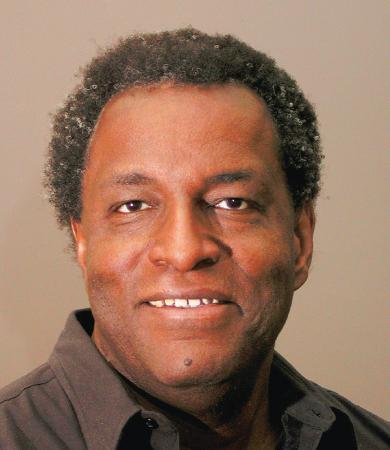
James H. Sidanius
Harvard University
December 11, 1945–June 29, 2021
APS Fellow
“Preferences for hierarchical communal arrangements seem to generalize by shaping perceptions, attitudes, and behaviors similarly across relational domains . . . The more individuals prefer hierarchically organized societal arrangements in which some groups are on top and others on the bottom, the less they show pro-social attitudes benefitting humans as well as non-human animals, or the natural environment.”
2021 (with colleagues), “Social and Ecological Dominance Orientations: Two Sides of the Same Coin? Social and Ecological Dominance Orientations Predict Decreased Support for Climate Change Mitigation Policies”
Group Processes & Intergroup Relations
“Low SDO [social dominance orientation] can also be associated with higher prejudice, given the presence of intergroup fear . . . Our results indicate that an egalitarian and non-dominant worldview, as indicated by low levels of SDO, might not be sufficient to buffer the effects of fear on prejudice, at least not in the case of Islamophobia.”
2020 (with colleagues), “The Nature of Islamophobia: A Test of a Tripartite View in Five Countries”
Personality and Social Psychology Bulletin
“Though the fear system underlying prepared learning may be useful under some circumstances, it may be at the root of some persistent social problems affecting modern societies—including xenophobia . . . The sole behavioral variable found to be associated with a reduction in conditioned fear was participants’ history of intimate interracial contact.”
2009 (with colleagues), “Fear Extinction to an Out-Group Face: The Role of Target Gender”
Psychological Science
11.5.2021: This article has been updated to reflect other passings since its original publication in the APS Observer.





APS regularly opens certain online articles for discussion on our website. Effective February 2021, you must be a logged-in APS member to post comments. By posting a comment, you agree to our Community Guidelines and the display of your profile information, including your name and affiliation. Any opinions, findings, conclusions, or recommendations present in article comments are those of the writers and do not necessarily reflect the views of APS or the article’s author. For more information, please see our Community Guidelines.
Please login with your APS account to comment.